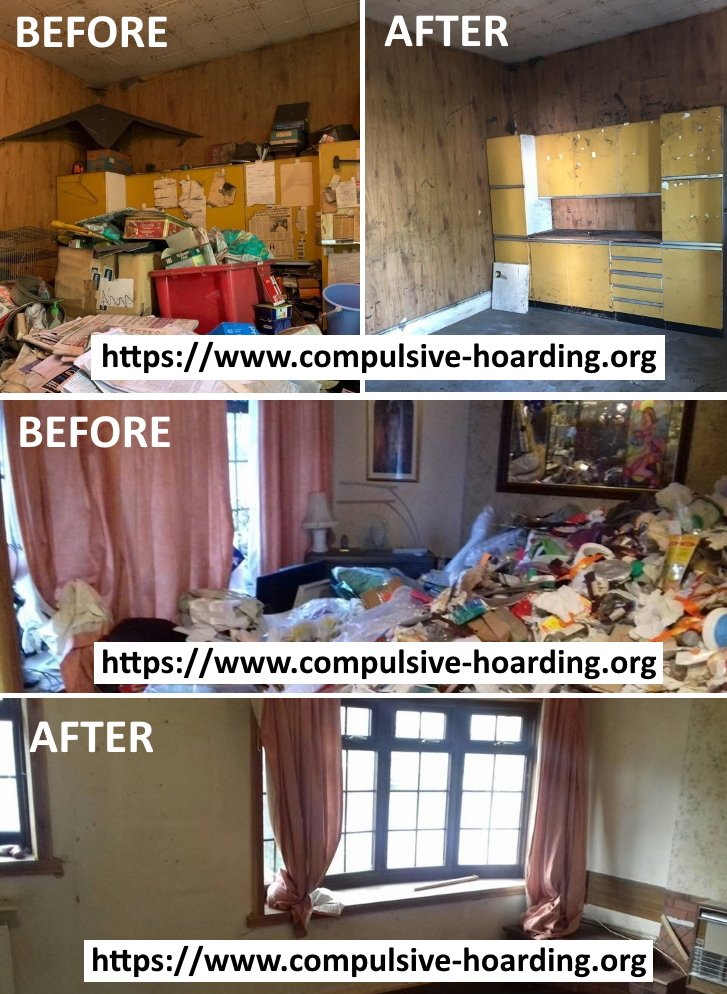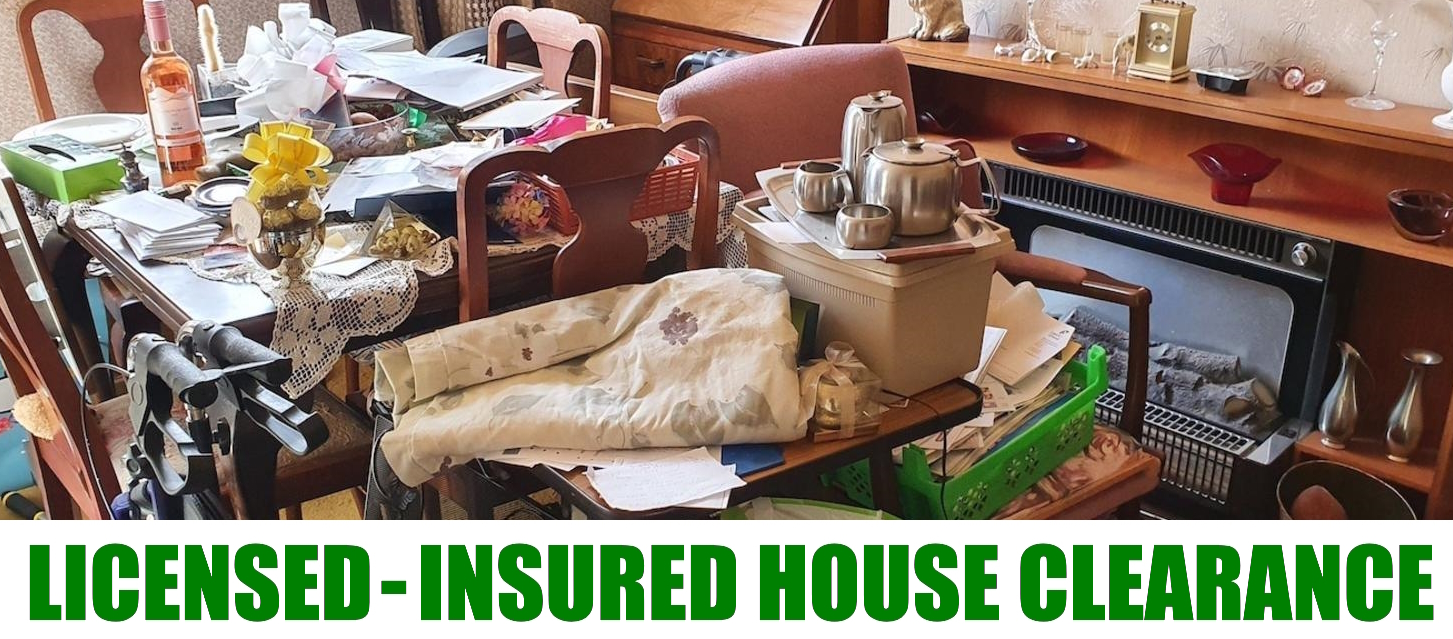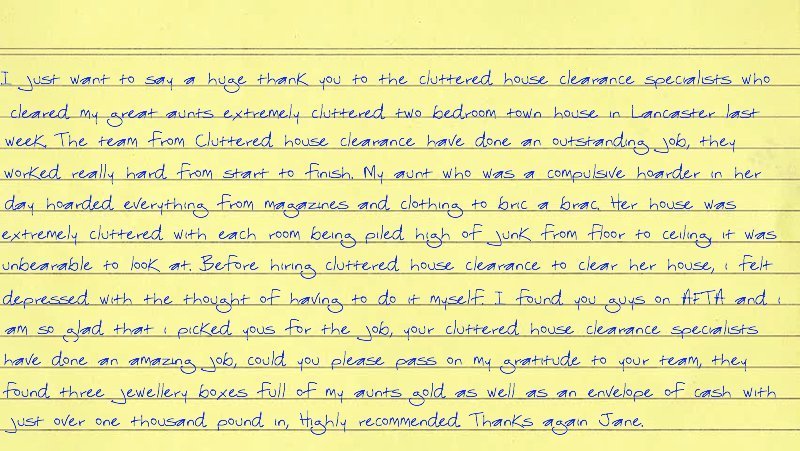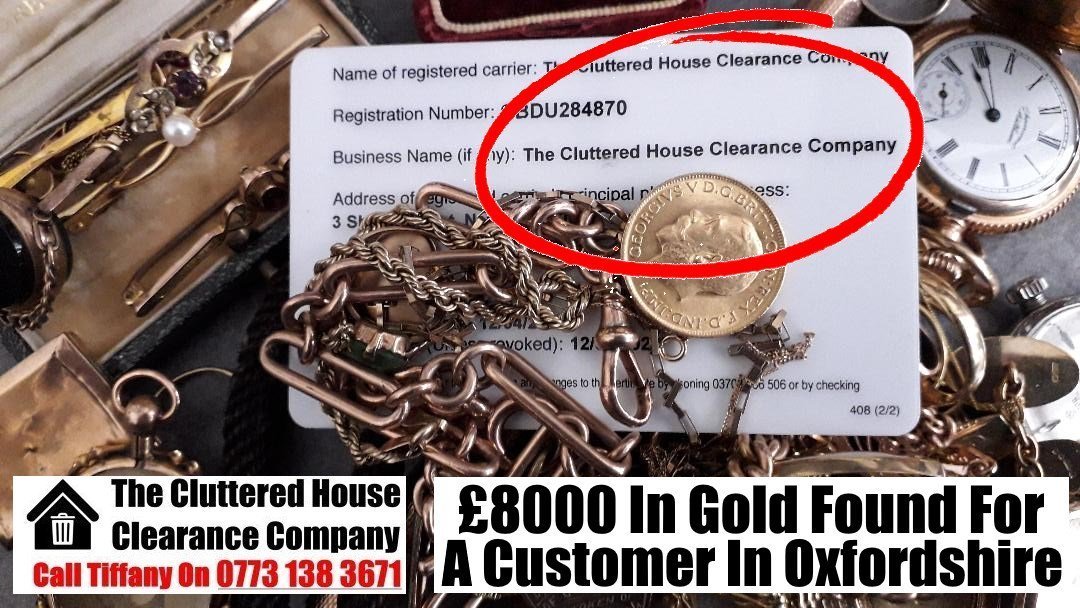
The Diagnostic and Statistical Manual of Mental Disorders is the bible of the American Psychiatric Association. In its fifth edition, the DSM separates hoarding from obsessive compulsive disorder. Finally recognising hoarding as a unique disorder will change the lives of hoarders.
As an independent disorder, hoarding will now be able to attract funding for research. This, in turn, means that a range of new treatments will become available. Although treatment will continue to work around parameters set by OCD, this remains a huge step forward.
General Practitioners, in particular, will benefit from this change. With expertise in short supply, and an absence of established protocol, GPs often struggle to understand just how debilitating compulsive hoarding can be.
Most compulsive hoarders also refuse to believe that they have a problem. This creates a perfect storm. The GP will not know how to proceed, and will likely recommend a professional psychiatrist. The patient may take offense to this, and refuse to engage further. Neither party has a satisfactory conclusion, and nobody is any closer to a resolution.
Even if the patient is responsive to the suggestion of professional help, the problems are only just beginning. Compulsive hoarding remains a mystery to many within the healthcare world. Only a small number of psychiatric professionals have a strong understanding of this condition. Hopefully, this will change in the near future. Continued near the bottom of this page.
Clearing a hoarder’s house? The Cluttered House Clearance Company offer professional compulsive hoarding clearing services in the UK. Specialists in cluttered hoarder house clearance.
Call us now to discuss your situation, let us tell you how our service works.
The Cluttered House Clearance company are fully licensed with the UK environment agency (Environment Agency Waste Carrier License NO #: CBDU284870), we are also members of AFTA.ORG.UK the Anti Fly Tipping Association
I just want to say a huge thank you to the cluttered house clearance specialists who cleared my great aunts extremely cluttered two bedroom town house in Lancaster last week. The team from Cluttered House Clearance have done an outstanding job, they worked really hard from start to finish. My aunt who was a compulsive hoarder in her day hoarded everything from magazines, clothing to bric a brac.
Association With Other Disorders
Hoarding is sometimes associated with other psychological conditions. This is referred to as co-morbidity. Hoarding may be a symptom of these issues. If that’s the case, the primary concern must be addressed first.
Medication or therapy may be available for these conditions. In most cases, a healthcare professional will have more experience in these fields, and thus feel more comfortable offering advice and help.
The Issues With Treating Compulsive Hoarding
Getting a referral to a psychiatric professional is a good start for a compulsive hoarder. There is no magic wand though, and frustration is likely for all concerned.
Drug therapy is rarely successful for a compulsive hoarder. These individuals live in a state of chaos. This means they’ll struggle to stick to a schedule, or may even lose their medication among the disorder of their home.
Hoarders also struggle to attend scheduled appointments. They may forget. Even if they don’t, a hoarder will struggle to find their car keys, cannot leave the house without checking that their possessions are exactly where they left them, or may find themselves unable to leave the house at all. Many hoarders live in fear that their hoard will be stolen, or tampered with, by an outsider.
Treatment is a lengthy process, and this needs to be acknowledged by all parties. That means the hoarder and their loved ones, and the professionals providing the care.
The treatment options for compulsive hoarding include the following:
- Medication
- Cognitive Behaviour Therapy (CBT)
- Intervention
- Support groups
- Self-help
Compulsive Hoarding & Medication
The primary medications used to treat hoarding are Selective Serantonin Reeuptake Inhibitors (SSRIs). Common examples of these are paroxetine (Seroxat or Paxil), fluoxetin (Prozac) or venlafaxine (Effexor). These prescriptions, which are commonly prescribed for depression and related conditions, will be provided at a high dosage for a period of around three months.
Unfortunately, compulsive hoarders without OCD generally respond poorly to SSRIs. Level 4 or 5 hoarding is typically not impacted by these drugs. However, compulsive hoarding is frequently linked with depression. This means that SSRIs will go some way to treating the root cause.
Clomipramine (Anafranil), a tricyclic antidepressant, is more impactful against OCD than most SSRIs. This drug also has more side effects, however. It may not be an appropriate prescription for all compulsive hoarders. Some healthcare professionals also consider the use of venlafaxine (Effexor). This is an SSRI, or a serotonin norepinephrine reuptake inhibitor (SRRI). This is one of the most commonly-prescribed antidepressants in the country.
ADHD is another condition that often shares co-morbidly with compulsive hoarding. If this diagnosis is made, an appropriate prescription for this issue will be provided.
Compulsive Hoarding & Cognitive Behaviour Therapy (CBT)
CBT is a highly effective treatment for OCD. More often than not, six sessions of CBT training yield results. Unfortunately, this is not the case with compulsive hoarders. The response rate to CBT is poor among hoarders.
If CBT is to be an effective treatment for a compulsive hoarder, intensive and one-on-one training with an experience therapist is required. These sessions will span a prolonged period of time, which of course comes at a cost. The average course would last at least 25 sessions, and could take up to a year.
The hoarder would also need to invite the specialist into their home, which may not be agreeable. It remains essential, however. This way, the specialist can tailor their treatment to the individual, finding unique motivations and coaching organisation skills, as well as proving utilising traditional CBT techniques.
Compulsive Hoarding & Intervention
Families sometimes clear a hoarder’s home while they are away. This ‘tough love’ approach is an attempt to help, but it often does more harm than good. The hoarder feels an intense sense of betrayal upon their return, and is frequently left traumatised. This can create deep-seated anger and resentment, and break family units apart.
Bringing in a local authority to clear a house is another option, but again, it’s inadvisable. Firstly, it’s prohibitively expensive. The costs of clearing a hoarder’s home can easily run into five figures, and these expenses will be passed onto the homeowner.
If they were unwilling to declutter, and are unable to work due to physical or mental disability, this can cause significant problems. If they cannot make the payment, the charge will be levied against the home and reclaimed from any eventual sale price.
In addition, a local authority will only step in if the home is considered a health and safety risk. This requires the property to be declared verminous. Once a hoarder’s property reaches this stage of disrepair, they have typically stopped granting access to visitors.
Throwing away, or even tidying and reorganising, a hoarder’s possessions will not fix their condition. They won’t see a different way of life, and consider it better. They’ll just panic. This means that they’ll acquire more clutter to replace that which they have lost. This can happen in a matter of months.
If a point of no return is reached, and family members feel they must intervene on the grounds of safety, it must be handled carefully. The hoarder must be consulted, and must co-operate with the process. Additionally, they must seek external support after the fact. If they fail to address their compulsion, they’ll just refill their home with clutter almost immediately.
Sadly, until compulsive hoarding is better understood, there are no straightforward solutions.
Compulsive Hoarding & Support Groups
Support groups for hoarders are a recent development. These may take the shape of group meetings in person, or through an online forum. Members of these groups will be encouraged to assign themselves a target, with other members providing support. An open dialogue can be shared, which can be invaluable for hoarders. This helps them overcome their feelings of shame and embarrassment, and begin moving on with decluttering their homes.
Compulsive Hoarding & Self Help
Once a hoarder has acknowledged that they have a problem, it’s the first step. Finding somebody that understands is the next. It may not be possible to find professional help. In such an instance, a fellow hoarder can be a valuable resource. Never overlook the importance that a sympathetic ear can provide. By teaming up with a fellow hoarder, individuals may find the whole process less overwhelming.
FREE Hoarded House Clearance Asset Recovery Service…
Our pre house clearance asset recovery service is 100% FREE. If we find NOTHING in the property then we ourselves expect nothing, no charges, no fees. We only get paid if we locate items of value and of course if you ask us to undertake the actual clearance after the search has been completed.
Please take a minute or two to read our page about our FREE Hoarded Houses Clearance Asset Recovery Service.








